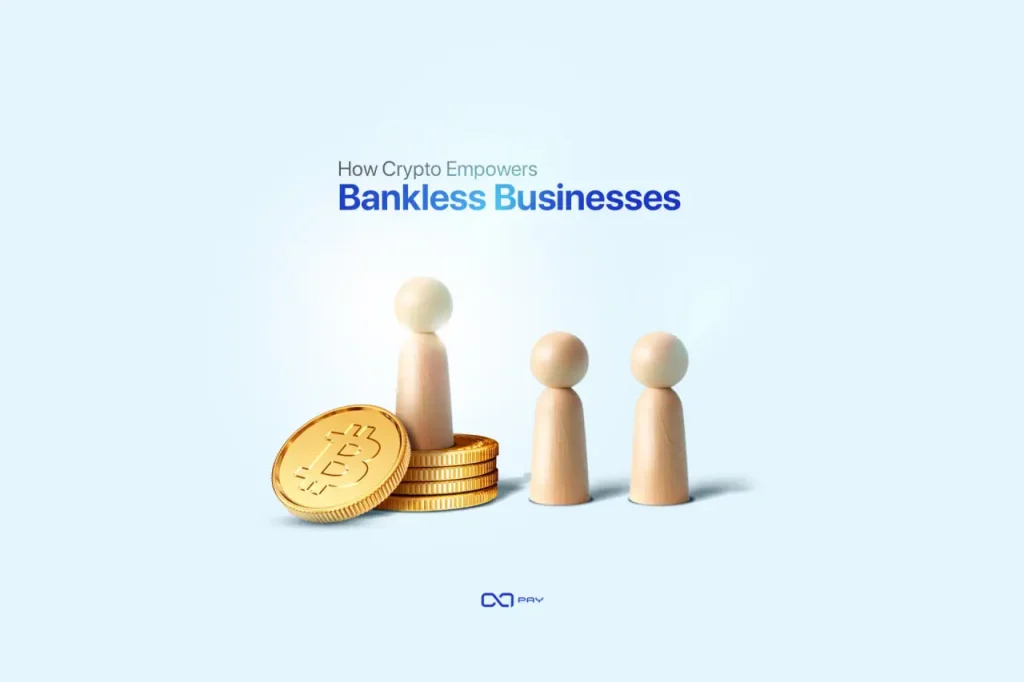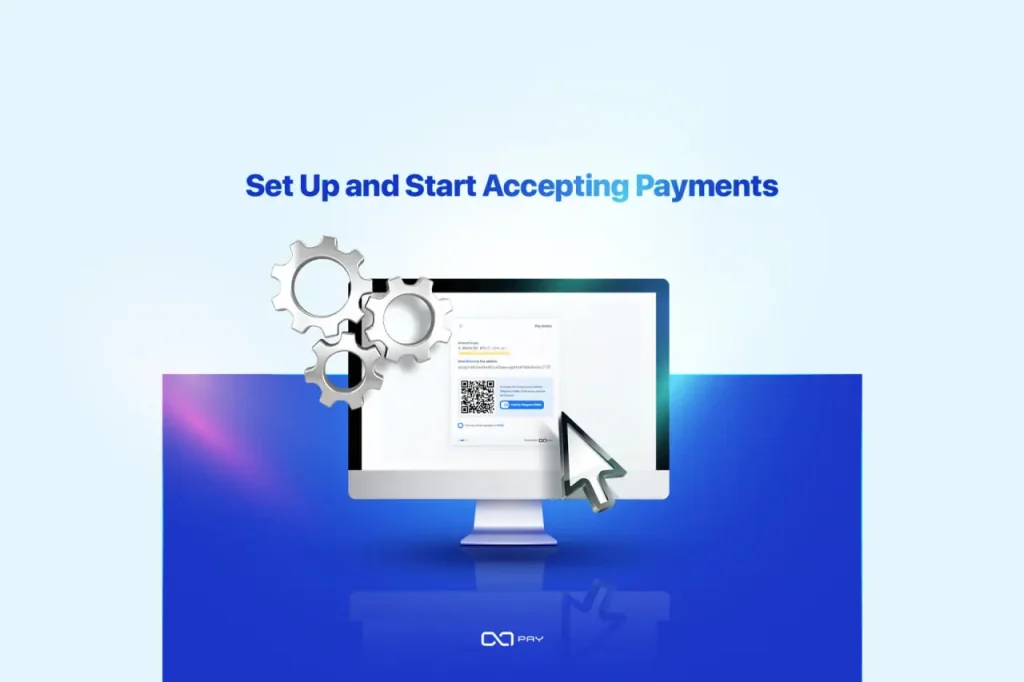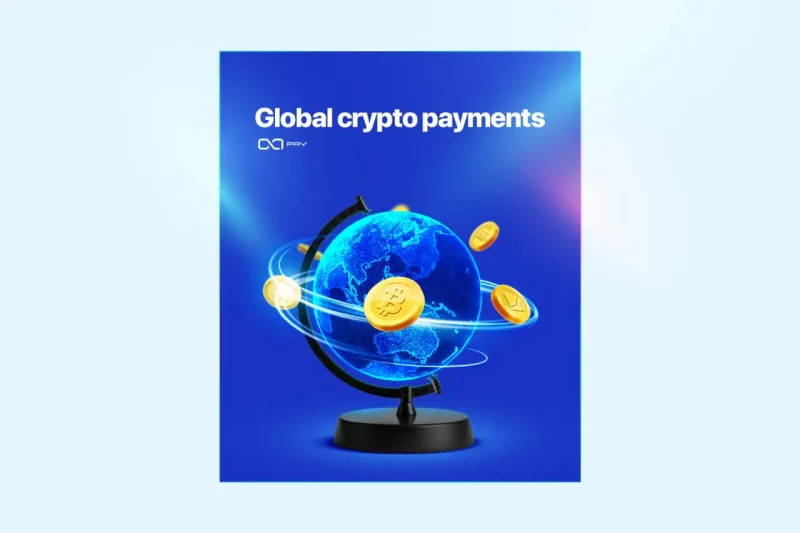Access to banking services is a major challenge for millions of businesses worldwide, especially in regions where traditional banking is restricted or inaccessible. According to the World Bank, over 1.4 billion adults remain unbanked, including small business owners, freelancers, and entrepreneurs who face difficulties with global payments and financial growth. Therefore, global crypto payments offer a seamless, cost-effective solution, enabling fast and borderless transactions. This article explores how crypto payments solve these challenges and how OxaPay provides a reliable solution.
Why Some Businesses Don’t Use Banks?
Businesses in various parts of the world struggle with limited access to banking due to several reasons. In such cases, global crypto payments provide a practical solution by enabling businesses to transact without relying on traditional banking infrastructure.
1. Limited Banking Access
- Many businesses in Africa, Latin America, and Southeast Asia operate in cash-based economies where traditional banking infrastructure is weak or nonexistent.
- According to a World Economic Forum report, over 70% of small businesses in developing countries lack access to proper financial services, making it difficult for them to expand or conduct global transactions.
- Without access to digital banking, these businesses are forced to rely on inefficient, expensive, or informal financial solutions, limiting their growth potential.
2. Sanctions and Political Barriers
- Countries like Iran, Venezuela, and Russia face international sanctions, making it difficult for businesses to access global financial services.
- Cross-border payments are often blocked or delayed due to banking restrictions, cutting off businesses from international trade.
- Local businesses struggle to operate globally as major financial institutions restrict transactions with these countries.
3. High Fees and Bureaucratic Barriers
- Bank account maintenance fees can be prohibitively expensive for small businesses, especially in developing economies.
- Wire transfers and international payments involve high costs and long delays, making them inefficient for businesses dealing with global customers.
- Strict KYC and documentation requirements make it difficult for entrepreneurs in some regions to open bank accounts or access essential financial services.
4. Freelancers and Digital Entrepreneurs
- Freelancers on global platforms like Upwork, Fiverr, and Freelancer.com often face high withdrawal fees and payment delays.
- In addition, bank restrictions in some countries block direct deposits from foreign clients, forcing freelancers to use costly remittance services or informal channels.
- Similarly, digital entrepreneurs without bank accounts struggle to receive online payments, which limits their business growth.
5. Lack of Trust in Banks
- In certain countries, political instability and economic mismanagement have led people and businesses to lose trust in banks.
- For example, during the Lebanese banking crisis, frozen accounts prevented businesses from accessing their own funds. In such cases, businesses turn to global crypto payments as a secure and independent alternative to traditional banking.
6. Currency Controls and Withdrawal Restrictions
- Many governments impose strict currency controls, limiting how much money businesses can send or receive internationally.
- For instance, businesses in Argentina, Nigeria, and Turkey often face challenges with currency exchanges and large international transactions.
7. Banks Rejecting Certain Industries
- Banks often refuse to work with businesses in high-risk industries, even if they operate legally.
- For example, banks often freeze or deny accounts for online businesses in industries like crypto, gaming, digital content, and freelancing.
8. Limited Access to Online Banking
- Many regions still lack advanced digital banking services, forcing businesses to conduct transactions in person.
- For example, in regions like Africa and South Asia, many businesses face challenges with outdated banking systems that lack support for online transactions.

How Crypto Empowers Bankless Businesses
Cryptocurrencies like Bitcoin (BTC), Ethereum (ETH), and stablecoins (USDT, USDC) offer businesses an alternative financial system that operates independently of banks. By cutting out intermediaries, lowering costs, and enabling global crypto payments, businesses benefit from seamless, borderless transactions. Moreover, for businesses facing banking restrictions, crypto provides a fast, secure, and cost-effective solution, allowing for global expansion.
1. Instant Global Payments Without Banking Delays
- Traditional SWIFT transactions take 1 to 5 business days due to intermediary banks and compliance checks.
- Global crypto payments settle within minutes or seconds, allowing businesses to receive funds instantly.
- For example, a freelancer in Nigeria can quickly receive payment from a U.S. client in USDT via the Tron network, avoiding long processing times and high wire transfer fees.
2. Lower Transaction Costs and More Profit Retention
- Bank wire transfers cost between $20 and $100 per transaction, plus currency conversion fees.
- Crypto transactions, especially on networks like Solana and Tron, cost less than $1.
- Businesses bypass hidden fees, intermediary costs, and high remittance charges.
- For example, a small business in Venezuela that uses crypto instead of PayPal avoids 5% cross-border payment fees, which significantly boosts its profit margins.
3. Control Over Your Funds
- Banks can freeze business accounts, block payments, or impose withdrawal limits, disrupting operations.
- With crypto, businesses own and control their funds directly, secured in digital wallets without third-party interference.
- For example, in 2019, Lebanese businesses turned to crypto when financial restrictions made bank accounts inaccessible.
4. Global Payments Without Restrictions
- Many businesses in sanctioned countries struggle with international banking restrictions.
- Global crypto payments enable seamless cross-border transactions, free from traditional financial barriers.
- For example, a software company in Iran can sell digital services internationally and receive payments in crypto, avoiding banking limitations.
5. Stablecoins Protect Against Inflation
- High inflation devalues local currencies, forcing businesses to look for alternatives.
- Stablecoins (USDT, USDC, DAI) provide a reliable store of value, pegged to the U.S. dollar.
- For example, businesses in Argentina hold funds in USDT rather than the rapidly devaluing Argentine peso, protecting their earnings from inflation.
6. Increased Financial Privacy and Security
- Traditional banking requires KYC and financial disclosure, exposing businesses to surveillance and regulatory restrictions.
- Crypto allows pseudonymous transactions, ensuring financial privacy.
- For example, independent journalists in restrictive countries use Bitcoin to receive anonymous donations, avoiding financial censorship.
7. Microtransactions Made Easy
- Traditional banking fees make micropayments impractical, limiting digital business models.
- Crypto enables low-cost, instant payments for content subscriptions, pay-per-use services, and digital goods.
- For example, a blog in India uses the Lightning Network to charge just a few cents per article, which would not be feasible with traditional credit card fees.
8. Crypto for High-Risk Businesses
- Businesses in gaming, adult content, and CBD industries struggle to get approved for bank merchant accounts.
- Crypto allows them to accept payments freely, without high-risk banking restrictions.
- For example, a gaming company in Brazil uses crypto payments for in-game purchases, bypassing traditional payment limitations.
9. Freedom with Decentralized Payments
- Banks can be pressured to freeze assets or block transactions, limiting business operations.
- Crypto operates on decentralized networks, ensuring censorship-resistant payments.
- For example, activists and NGOs in countries with financial restrictions use Bitcoin donations to overcome financial barriers.
Crypto Challenges and Solutions
While global crypto payments offer businesses financial freedom, they also come with challenges that need to be addressed for secure and efficient adoption.
1. Price Volatility
- Cryptocurrencies like Bitcoin and Ethereum often experience price fluctuations, which can affect business revenue.
- Solution: To avoid volatility and maintain price stability, businesses should accept stablecoins such as USDT, USDC, or DAI.
2. Security Concerns
- Since crypto transactions are irreversible, they can become targets for hacks and fraud.
- Solution: Therefore, using secure wallets, enabling two-factor authentication (2FA), implementing multi-signature wallets, and storing large funds in cold storage are essential security measures.
3.Regulatory Uncertainty
- Many countries still have unclear or constantly changing crypto regulations.
- Solution: As a result, businesses should stay informed about local laws, choose compliant crypto payment gateways, and ensure proper tax and reporting compliance.
4. Customer Adoption and Education
- Some customers may not be familiar with crypto payments.
- Solution: Consequently, businesses should provide clear payment instructions, support a variety of crypto options, and educate customers on how to make secure transactions with crypto.
By addressing these challenges, businesses can safely integrate crypto payments and maximize their benefits.
How to Start Accepting Crypto
1. Choosing a Crypto Payment Gateway
To accept global crypto payments, businesses need to choose a crypto payment gateway such as OxaPay, BitPay, or CoinGate. For businesses facing banking restrictions, selecting a gateway that does not require KYC, like OxaPay, is crucial.
Why OxaPay is the Best Choice for International Payments Without KYC
OxaPay provides merchant tools, invoicing, API integration, and easy payment options for websites and e-commerce stores, making crypto transactions seamless.

2. Set Up and Start Accepting Payments
After choosing a crypto payment service and integrating it into their business, they can start accepting global crypto payments through methods such as:
- Payment links generated by the service
- QR codes for quick transactions
- On-site crypto checkout options
- Invoice-based payments for business clients
These solutions allow businesses without access to banks or traditional payment systems to operate globally and securely.
OxaPay: The Global Crypto Payment Gateway
OxaPay is a crypto payment gateway that enables businesses to accept global crypto payments easily, even in regions with financial restrictions. It offers a user-friendly experience, fast transaction processing, and advanced payment tools. Moreover, by eliminating the need for traditional banking systems, OxaPay provides a secure and independent solution for businesses looking to expand their payment options and operate globally.
Why Choose OxaPay?
- No KYC required – Ideal for businesses facing banking restrictions
- Low transaction fees – Cost-effective compared to traditional payment systems
- Easy integration – Supports payment links, QR codes, invoices, and API
- Borderless transactions – Accept global crypto payments without intermediaries
- Multi-currency support – Enables payments in Bitcoin, Ethereum, USDT, and more
Conclusion
Cryptocurrency is creating new financial opportunities for businesses, particularly those without traditional banking access. By adopting global crypto payments, businesses can not only bypass banking restrictions but also handle cross-border transactions, gaining financial independence. Furthermore, OxaPay offers a fast, secure, and user-friendly gateway, making it an excellent choice. Ultimately, as the world moves toward bankless finance, crypto is revolutionizing global transactions.




